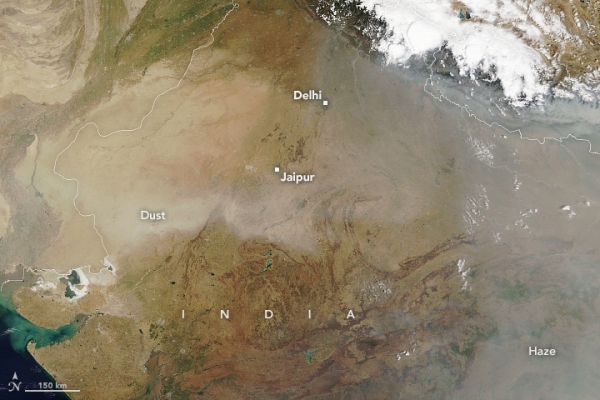by Watchman » 25 Mar 2023 06:34
Doctors and public health experts agree that breathing fine particulate matter (PM2.5) can be harmful to human health. The airborne particles—thirty times smaller than the width of human hair—can pass easily into the lungs and bloodstream, where they can increase a person’s risk of dying from heart disease, stroke, lung cancer, chronic obstructive pulmonary disease, and lower respiratory infections.
However, current estimates of the total number of premature deaths linked to PM2.5 range widely, from 3 to 9 million people each year. And there has long been uncertainty about the proportion of these deaths that are due to naturally occurring windblown dust versus human-caused (or anthropogenic) pollution, which comes from factories, transportation, power plants, cookstoves, crop fires, and other sources.
READ FULL ARTICLE HERE

Doctors and public health experts agree that breathing fine particulate matter (PM2.5) can be harmful to human health. The airborne particles—thirty times smaller than the width of human hair—can pass easily into the lungs and bloodstream, where they can increase a person’s risk of dying from heart disease, stroke, lung cancer, chronic obstructive pulmonary disease, and lower respiratory infections.
However, current estimates of the total number of premature deaths linked to PM2.5 range widely, from 3 to 9 million people each year. And there has long been uncertainty about the proportion of these deaths that are due to naturally occurring windblown dust versus human-caused (or anthropogenic) pollution, which comes from factories, transportation, power plants, cookstoves, crop fires, and other sources. [b][size=150][url=https://www.enn.com/articles/72232-how-dust-affects-the-world-s-health]READ FULL ARTICLE HERE[/url][/size][/b]
[img]https://1408440223.rsc.cdn77.org/images/2023-03/03-24-2023_04.jpg[/img]